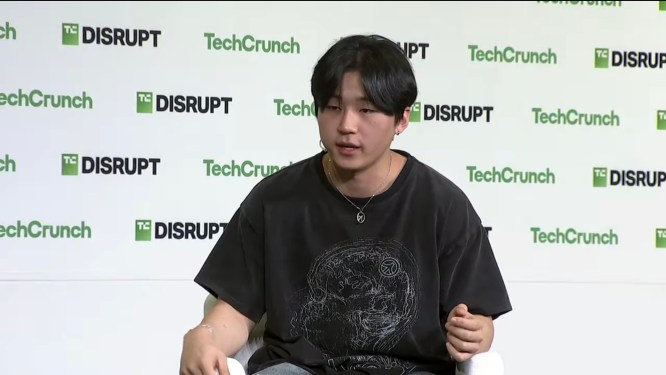Roy Lee, the founder of Cluely, argues that startups should think more carefully about social media virality. He also admits that brand awareness alone will not lead to sustained growth. Lee reflected on stage at TechCrunch Disrupt 2025 that his company may have launched too early. He explained the initial idea was to launch a product that barely worked and rely on early users to discover the use cases.
Cluely entered the tech scene in April with a rage bait marketing campaign for a product it claimed would help users cheat on everything. Lee first gained attention when he was suspended from Columbia University for building a tool used for cheating on coding job interviews. He used that notoriety to launch Cluely, a startup that promised to deliver undetectable information during online conversations.
In late June, the company introduced an enterprise product aimed at multiple use cases, including sales calls, customer support, and remote tutoring. However, earlier this week the startup shifted its strategy and narrowed its scope. It introduced a new website that describes its product as an AI assistant for meetings. The company’s new plan is to become the best AI note taker, starting with the consumer.
As an AI note taker, Cluely is entering a crowded market. Lee highlighted functionality such as sending follow-up emails. He deflected questions about sales and retention, only stating that the company is doing better than he expected, but it is not the fastest growing company of all time.
The startup’s ability to capture attention helped it secure a fifteen million dollar Series A from Andreessen Horowitz in June. That month, a partner from the firm said he backed Cluely because Lee had figured out how to convert that attention into paying customers.
When the company introduced its product this summer, Lee boasted that its annual recurring revenue skyrocketed from three million to seven million dollars within just one week. He claimed that every person who had a meeting or an interview was testing the product out.
Four months later, Lee is no longer eager to share his company’s financial metrics. He stated that you should never share revenue numbers. Lee claimed there is no upside to revealing company performance. If you are doing well, nobody will talk about it, but if you are doing poorly, then everybody will focus on that. However, dozens of founders at other fast-growing AI startups publicly share their annual recurring revenue, making it a standard practice during the AI boom.
Cluely’s experience so far suggests that for software companies, social media attention only goes so far. A company must have a strong product to keep customers after it initially intrigues them.

